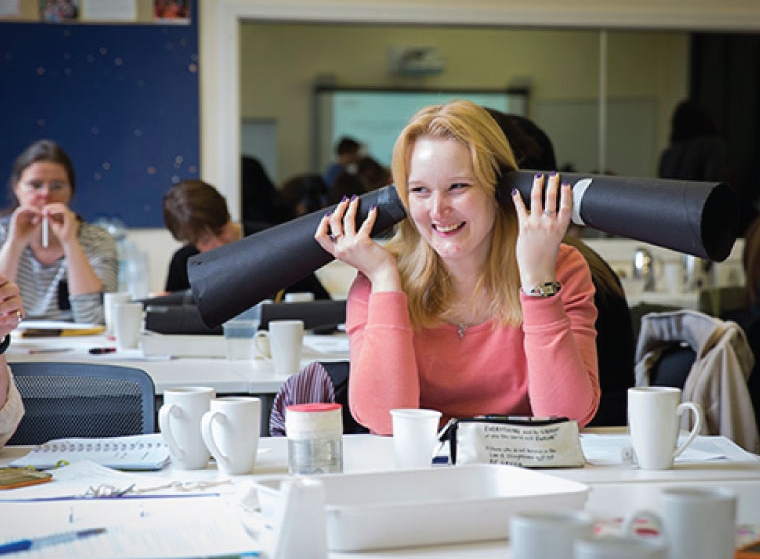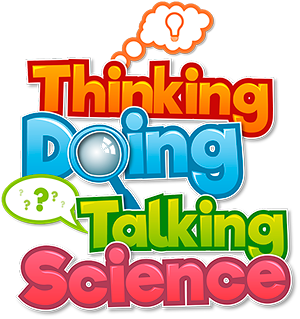Primary Programme
Why TDTS?
The Wellcome Trust’s research into primary science teaching shows strong connections between pupils’ attitudes to science and the practice and expertise of their science leaders.
TDTS was designed as a way to support the practice and expertise of primary teachers and has strong evidence to show the positive difference it makes both to teachers and to pupils. The Wellcome Trust’s popular Explorify resource for teachers has drawn upon and made use of TDTS strategies.
A module that explains one of the key TDTS strategies to facilitate pupil discussion, the Bright Ideas Time, can be found on the Primary Science Teaching Trust’s website here. Science Oxford can deliver an online version of their TDTS Taster 1 CPD session focussed on discussion techniques to encourage pupils’ thinking skills. TDTS-based activity resources created by Science Oxford can also be found here..

About the course
The four training days of TDTS are spread out across a school year and the training is delivered by primary science experts, who have participated in a TDTS ‘Train the Trainer’ programme. Schools are encouraged to send at least two teachers to a course wherever possible, as this helps significantly with maximising the positive impact of TDTS back in school.
The course title, Thinking, Doing, Talking Science, was chosen because we believe in ‘doing what it says on the tin’! Hence each day of the training will involve you in just that: thinking, doing and talking science. You will be asked to try out some of the project strategies with your class and then be ready to share your experiences and good practice at the following training day. In this way, there are many opportunities for mutual learning and the sharing of good ideas.
There is a clear framework that ties together the project strategies and this is embedded in sound educational theory. Our ideas are not all new but pull together a range of good practice in primary science education, in a way that has been shown to be highly effective.
All of the TDTS strategies support progression in ‘working scientifically’ and on each day of the course, the strategies are exemplified through a particular curriculum content area (e.g. Materials, Forces, Earth and Space, Light and Sound and Habitats & Adaptation) for which there are accompanying subject knowledge notes. All teachers who participate in a 4-day TDTS course are provided with a hard copy of all the resources in a TDTS folder as well as access to electronic versions of the resources.
How we can help
We are currently able to provide TDTS courses in three ways:
In your region
We regularly run courses in collaboration with our education partners in various regions of England – please contact us at [email protected] for more information.
In York
We work in partnership with STEM Learning to provide TDTS courses at the National STEM Centre in York. The next course will be starting on 20 November 2023. For more information see the STEM Learning website.
In Oxford
We provide TDTS courses at our Science Oxford Centre that can be booked by individual teachers. The next course will take place on the following dates:
Monday 6th November 2023
Monday 15th January 2024
Monday 4th March 2024
Monday 22nd April 2024
We are offering a subsidised cost of £400 per teacher (second teacher £200).
To find out more and book please e-mail [email protected]
We are happy to help with any queries you may have about TDTS. Contact us at [email protected] in the first instance.
Access to these resources
Our online resources are available for teachers who have completed a full 4-day or 4.5-day TDTS course. To access the resources section, please contact [email protected] with details of the course that you attended and the name of your school.
Log in here

“Children start to develop perceptions about whether science is ‘for them’ towards the end of primary school. It is therefore essential that all primary school pupils experience inspiring science that builds their understanding of the value and place of science in their lives. This will lay the bedrock for their future studies, enable them to make well-informed decisions in our increasingly hi-tech world and give them access to a wide range of rewarding careers.”
Wellcome Trust Report 2014 – Primary Science: Is it Missing Out?


